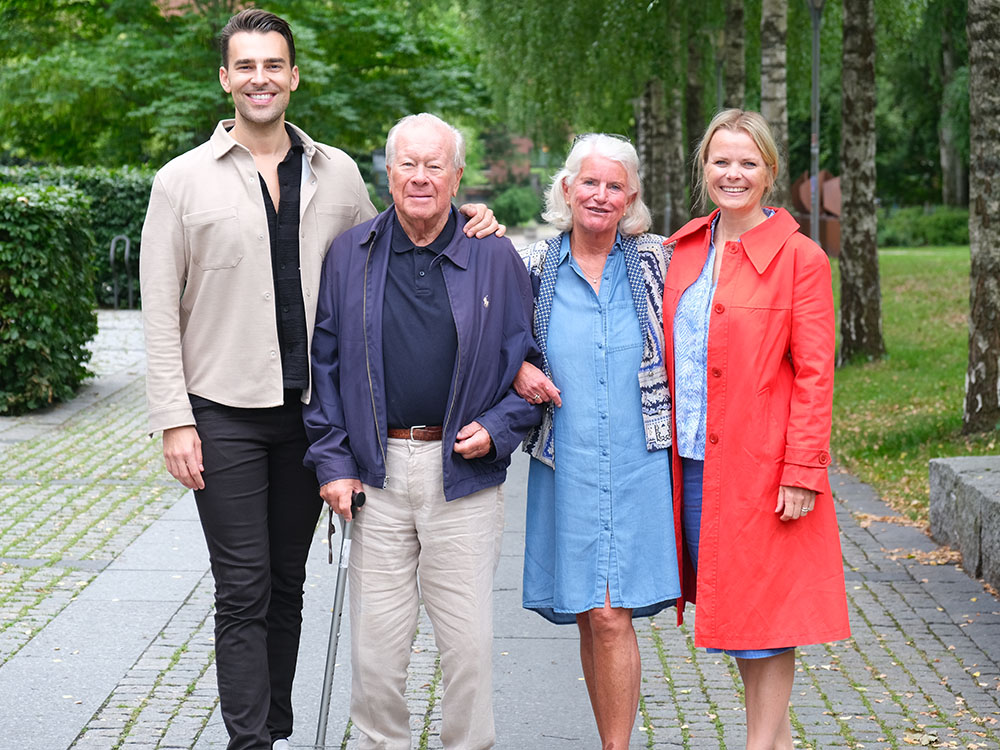The University of Oslo Human Rights Award is given in recognition of great personal effort and active involvement towards furthering human rights.
Call for nominations
The University of Oslo now invites organisations, associations and individuals to nominate candidates for the 2024 University of Oslo Human Rights Award. Deadline is 15 March.
Winners in 2023: Ingrid Gjessing Linhave and Demenskoret with conductor Kim Wigaard

The University of Oslo Human Rights Award - Lisl and Leo Eitinger's Fund 2023 is awarded to Ingrid Gjessing Linhave, host at NRK (Norwegian Broadcasting Corporation), and the choir Demenskoret with its conductor Kim Wigaard.
They receive the prize for their work on NRK's groundbreaking documentary series Demenskoret ('the dementia choir'). Through this series, they have brought the issue of human rights for people with dementia into the spotlight – an issue that has received little discussion and attention despite its relevance to an increasing number of individuals.
Former awardees
The very first winner of the University of Oslo Human Rights Award was writer, philosopher and political activist Elie Wiesel, who received the award in 1986.
The prize has been given out every year since, to worthy winners from all across the world.
Lisl and Leo Eitinger's Fund
Leo Eitinger was Norwegian-Jewish humanist, doctor and professor of psychiatry at the University of Oslo. Together with his wife, he founded Lisl and Leo Eitinger's fund in 1984.
The Prize Committee
The UiO Human Rights Award is awarded by the University Board at The University of Oslo after recommendation by a prize committee of five members.
Contact
If you have questions concerning the award or the award ceremony, feel free to email us: